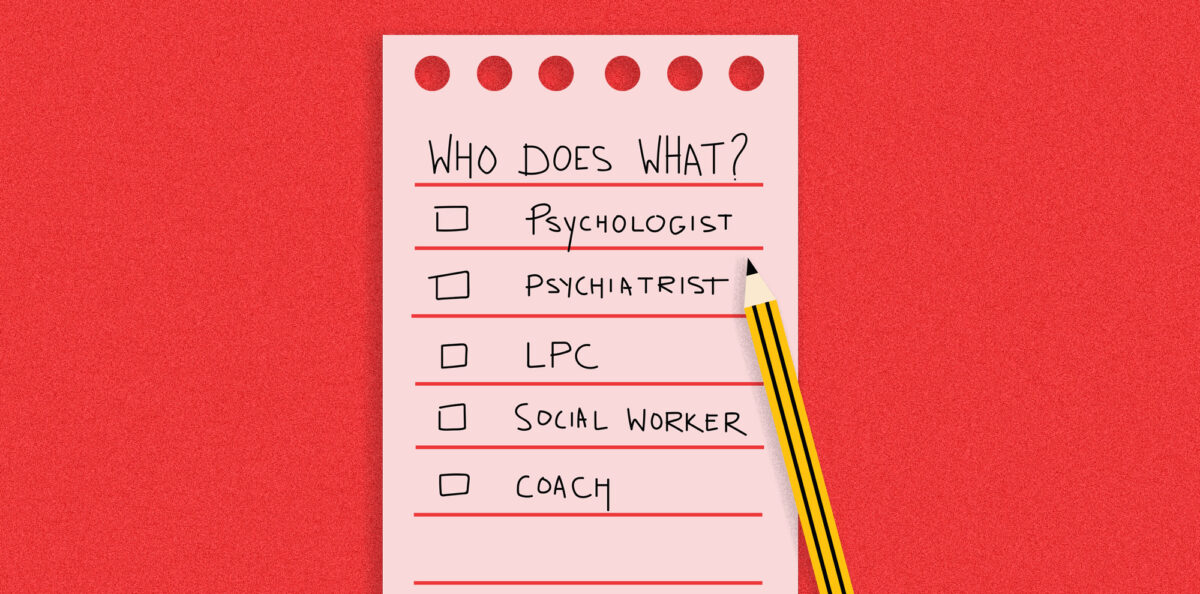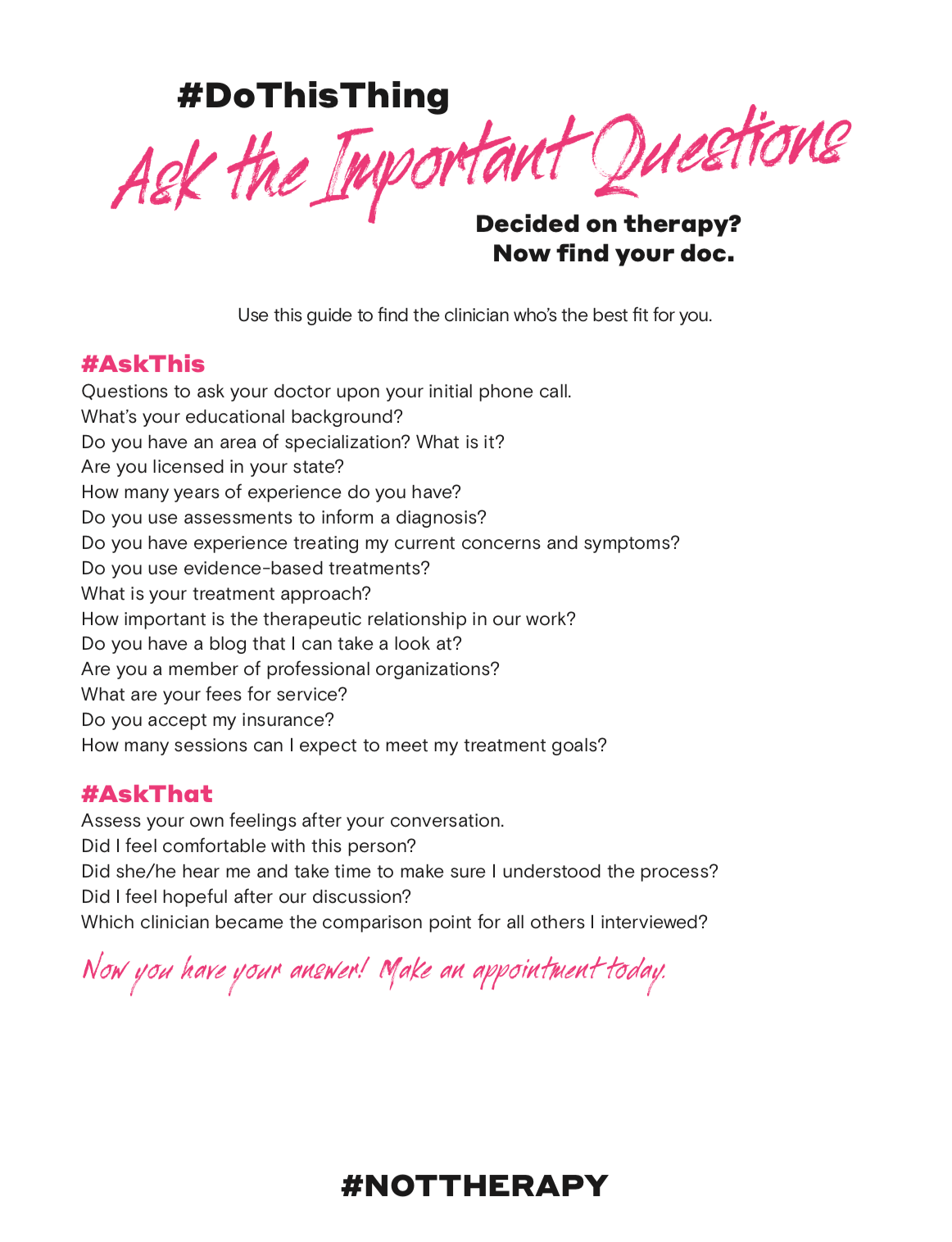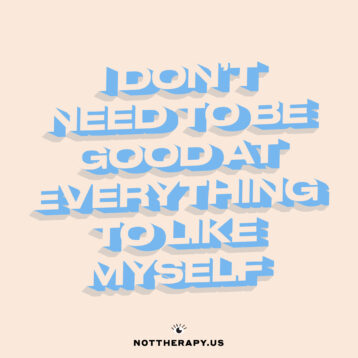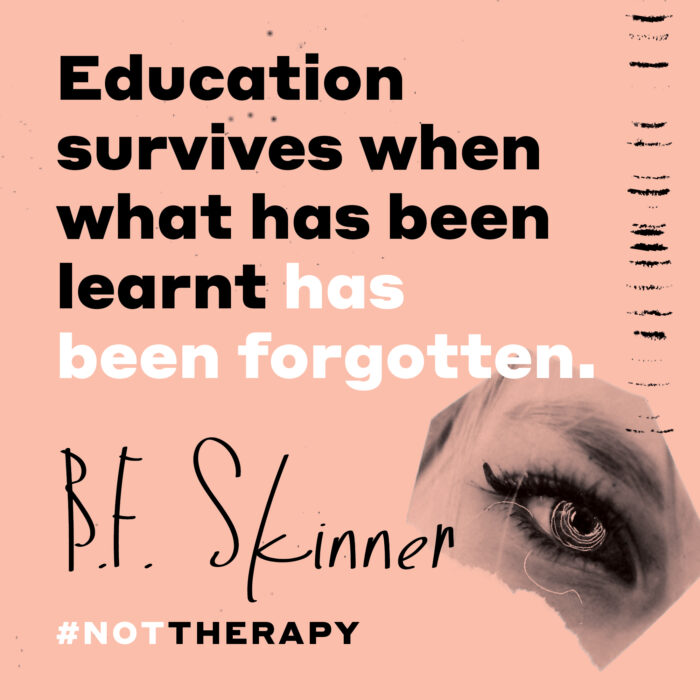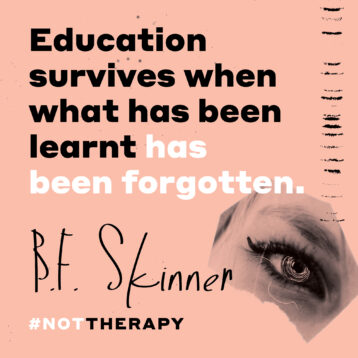Here’s you: overwhelmed by all the feels but not sure what to do about it.
Your mom wants to call the pediatrician (seriously?). The guidance counselor was weird when you cried in class. What’s even the difference between a psychiatrist and a psychologist? Too many options, not enough information. I get it.
In honor of National Physicians Week, let’s take a look at how physicians can potentially be an asset to the team of trusted professionals that will help you sort out your mental health concerns and develop a long-term solution for your well-being.
I often get calls from teens and/or their parents looking for clarification on who does what, as they determine the best fit for them or their child.
Here’s the deal:
The Psychologist
This is a doctor (PhD or PsyD) who has spent a significant number of years in training. The assessments and treatments used by psychologists are evidence-based, meaning that science drives their diagnostic impressions and the care they provide through therapy and education. For those of you who are wondering, this is me.
The Psychiatrist
A doctor (MD or DO) specializing in mood disorders, psychotic disorders and substance-related disorders. Psychiatrists are trained to manage mental health concerns with medication and much of their time is spent on medication management.
The Licensed Professional Counselor (LPC)
A mental health professional with a masters degree in psychology, counseling, or a related field. An LPC is qualified to treat a variety of mental health problems, and oftentimes is more affordable (therefore might work better for your parents’ budget), though she may not have the breadth of experience of a licensed doctoral level clinician and will refer out as needed.
The Life Coach
A person who helps individuals meet their goals and navigate through major life transitions. While educational requirements vary dependent on state, often no educational requirements exist for life coaches. Life coaches are not qualified to treat mental health problems.
The Social Worker
A helping professional who can be licensed at different educational levels ranging from associates to master’s degrees. Social workers often engage in individual and family therapy with clients and more often, they connect clients with community resources that can help them to meet their individual goals.
The Therapist
A psychologist, counselor, social worker or coach. “Therapist” is an umbrella term people use to describe all of these very different professions.
#TheFacts
Psychologists and psychiatrists have the most extensive training to treat mental health problems. However, the nature of their training lends itself to different ways of assessing and treating the problems people face.
Psychologists are trained to do in-depth testing and assessments in an effort to establish a proper diagnosis, and they treat mental health problems using evidence-based behavioral therapies.
It’s important to note that psychologists don’t only help people who are struggling, they also provide evidence-based strategies for people interested in becoming better versions of themselves.
Psychiatrists, on the other hand, are trained in the biology and neurochemistry of the problem and treat issues using medication. Psychiatrists are able to prescribe medication, while psychologists (other than in a few states) are not. For those not interested in talk therapy and/or need a quicker fix than talk therapy can achieve, the psychiatrist’s office is often the first stop.
#InOtherWords
If you’re struggling with a mental health problem, the first step is to go to your primary care physician for a check-up. Explain your concerns to your doctor and get a full battery of blood tests, checking your thyroid levels, among other things.
Once you have your bloodwork, if all levels point to normal and there is nothing medically out of whack, it is time to seek additional insight. Make an appointment with a psychologist for an evaluation.
Here’s what you can expect in your work with a psychologist. First, you’ll receive a full battery of tests to come to a diagnostic impression. Next, you and your psychologist will create a treatment plan with approximately three measurable goals for your work together. Your clinician will pace with you and lead you toward your goals, using evidence-based strategies and skill-sets. The type of treatments and strategies will depend on what problems you face. For example, in treating OCD, Exposure With Response Prevention is what works best, while for Depression, Cognitive Behavioral Therapy is proven to be effective.
You can expect some relief in several weeks.
In my work, if behavioral strategies aren’t providing relief from symptoms after several weeks, I refer my clients for an evaluation with a psychiatrist. This way, they can use both types of treatment—medicine and behavioral, to meet their treatment goals. I find that people often need a low dose of medication to improve their symptoms enough to effectively implement the behavioral strategies they’re learning in therapy with me.
There are several exceptions to this regimen. In cases where psychosis, severe bipolar disorder, and ADHD are the diagnosis, I refer to a physician for a medication evaluation right out of the gate. Research indicates that medicine is a necessary component for long-term management of the symptoms that come with these three diagnoses.
I have had experience working with a number of licensed counselors and social workers, who do amazing work for those who are struggling with mood and anxiety disorders, social problems, and more. I’ve also personally worked with a life coach, most recently when I was figuring out what to do with #NotTherapy. It was super-helpful to have someone with business experience walk with me through this unfamiliar territory. With that said, if you are struggling emotionally, if your feelings are on a rollercoaster or you’re struggling to navigate whatever it is life’s throwing at you right now, I’m biased toward seeking care from a psychologist.
Determine the clinician who will be right for you, using this week’s #DoThisThing as a guide and then give the work everything you’ve got. I promise, it works if you work it.
Art by Shyanne Trutwein.


